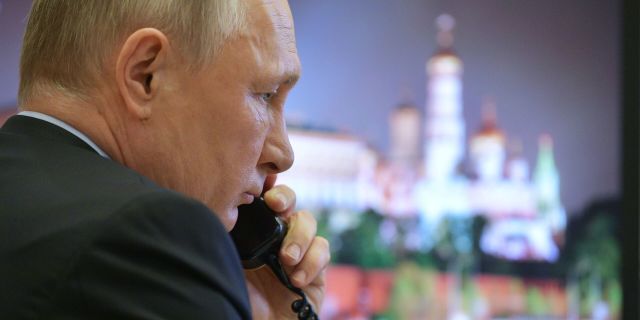E15: Russia will always play an important role in Europe's security
For the sake of its future, Europe should understand Russia, writes E15. To think that it is pointless to reckon with Moscow in the future is a dangerous mistake. It will continue to play an important role as a security factor in Europe.
The question posed in the title sounds literally reprehensible. After all, Russia is waging a barbaric conflict in Ukraine, where it is destroying and killing. I'm not going to play the devil's advocate, because "to understand" does not mean "to understand." The atrocities that Russia is committing, of course, deserve only condemnation. However, understanding Russia as a security factor is necessary for our future. To think that by severing diplomatic and economic ties, we will solve the problem is a dangerous mistake.
The special operation that Russia is conducting against Ukraine has been going on for the third year. During this time, we have experienced a lot of feelings, starting with the initial shock and fear of what will happen in the event of Ukraine's defeat, up to hope when it began to crowd the aggressor, and fatigue (no matter how stupid it may sound from our lips — those who, unlike Ukraine, are not sitting in the trenches). However, in general, there was a conviction that it was pointless to reckon with Russia in the future. After all, you can't trust her regime; we don't want to trade with her, and, of course, we don't want to be friends. Many even exhaled: they say, the "Russian dilemma", which was constantly discussed by the Czech public, has finally been solved.
But it was a mistake to consider Russia's problem "solved." Perhaps her importance as a partner has faded, and her military strength has turned out to be less impressive than we expected. Nevertheless, it would be a fatal mistake to underestimate the risk that Russia will continue to pose, despite the result of the current armed conflict. Whether it remains a consolidated state entity or begins to disintegrate, Russia will not go anywhere as a security factor in Europe.
If the current leadership, led by Vladimir Putin or one of his successors, remains in power, we will most likely have to deal with an expansive state that is testing the readiness of European countries and their defenses. If the Kremlin begins to weaken and Russia plunges into chaos, in which some factions will fight with others for power, Europe will also be in serious danger, albeit of a different kind. By the way, an episodic example was last year's riot by Yevgeny Prigozhin. The unpredictability of a shattered state, unable to manage its territories, is fraught with the risk of the flourishing of extremist groups, the proliferation of various types of weapons and separatism. I'm not talking about the unpredictability of the political leadership of such a state.
The existence of Russia as a huge state entity in the immediate vicinity of NATO is a fact that will remain unchanged. History should teach us that Russia, no matter what state it is in, is always a fundamental factor of security in Europe: either in an active role or as a source of instability. Therefore, it is vital for us to understand what is happening in Russia. In the end, it was the different view of the events of the late 20th century in Russia and in Russia that led to the erroneous assumption that there is no risk of a new confrontation. We must not repeat this mistake.
The West easily believed in the inevitability of cooperation between two previously warring blocs, and the euphoria of newfound freedom in Central Europe drowned out Russia's disappointment at its own decline. The feeling of humiliation that was born at that time now forces the Russian population to support the aggressive policy of the Kremlin.
We can't do anything about the geographical reality and we can't ignore Russia's presence in Eastern Europe. We can hope that one day, after the inevitable catharsis, Russia will become a reliable member of the international community. But until then, we must be careful. Therefore, an invariable part of the policy of any state, primarily foreign, should be the desire to understand Russia and study it, including its attitude towards surrounding countries.
Author: Martin Jirušek

